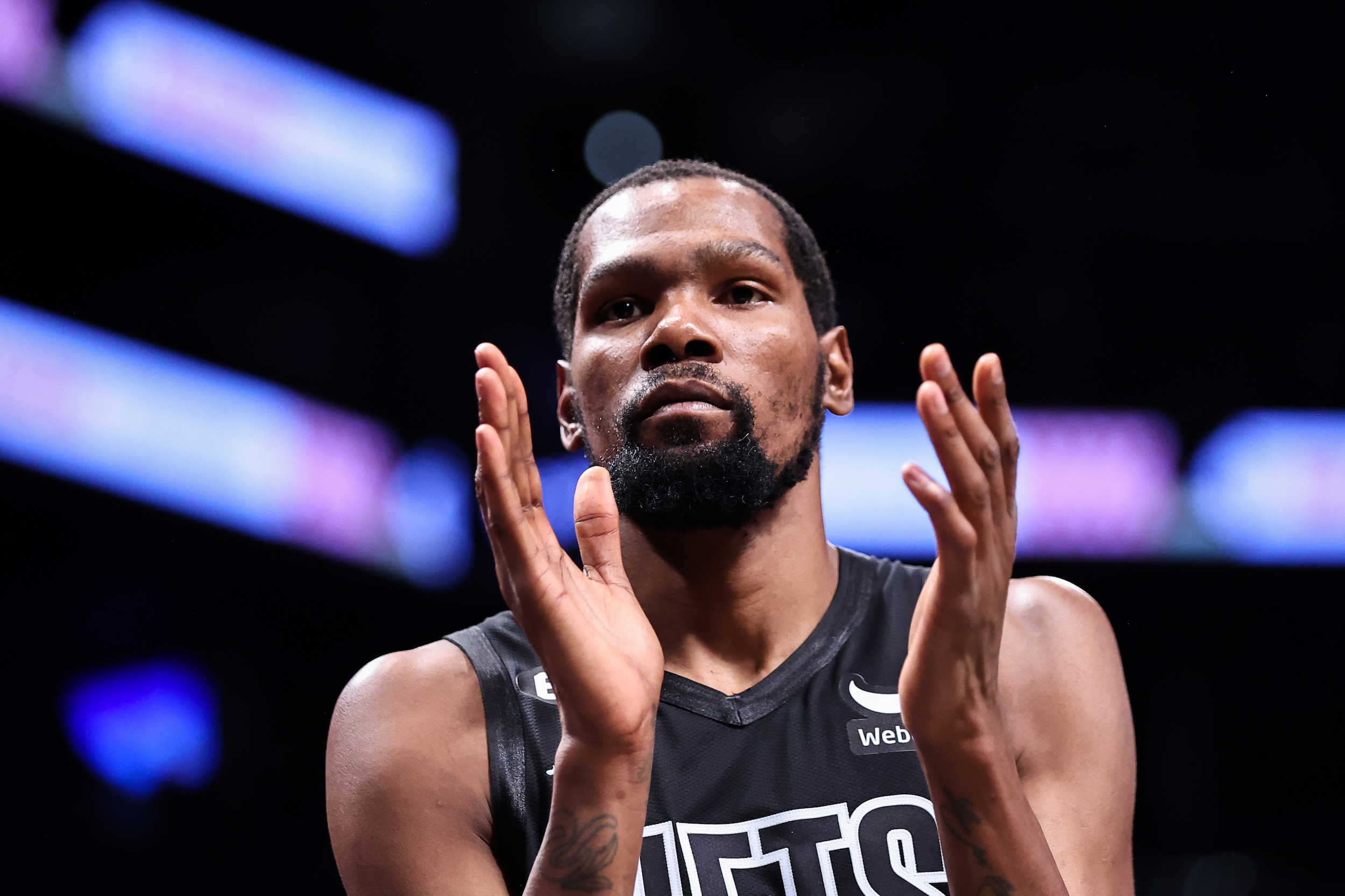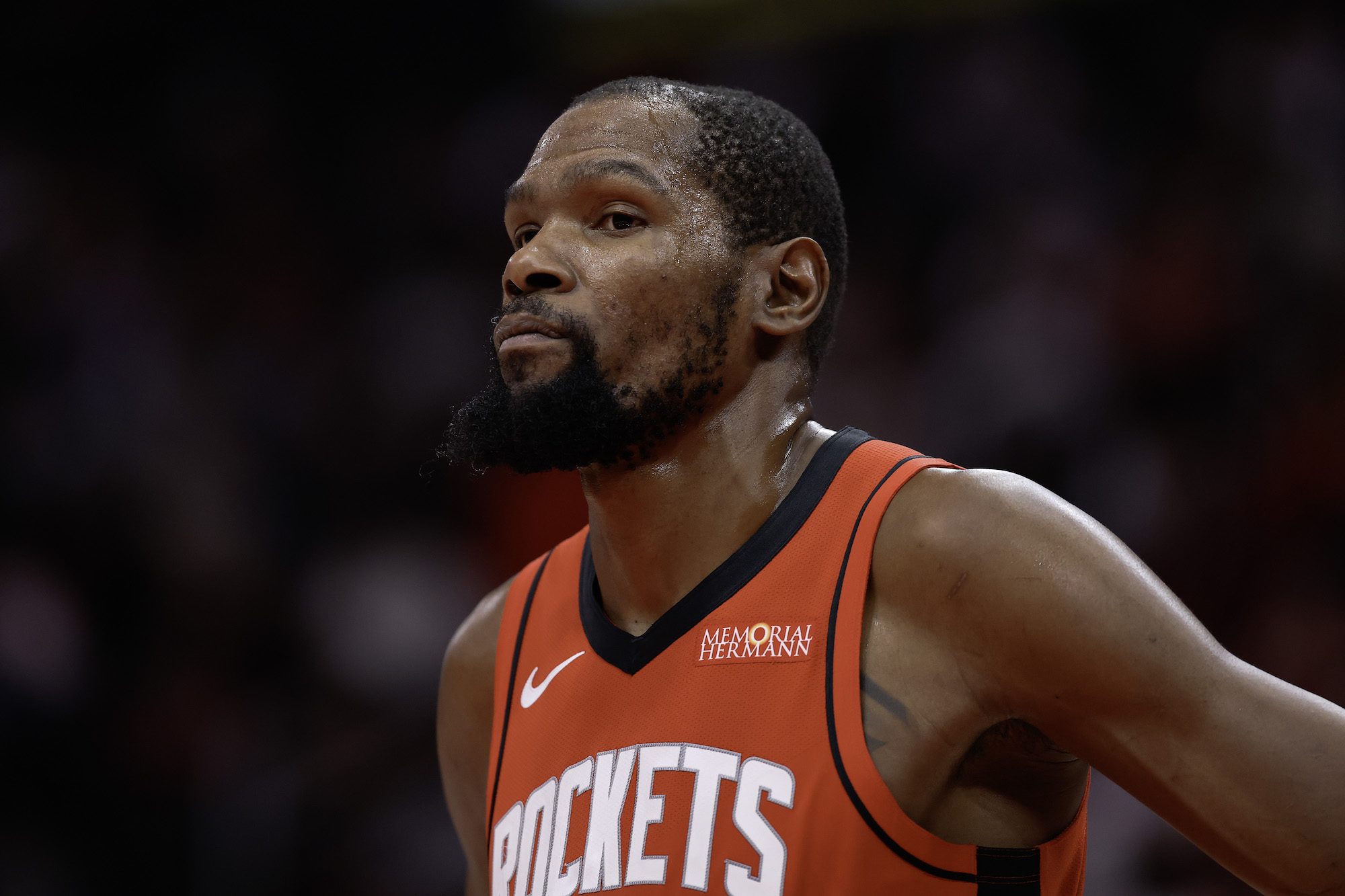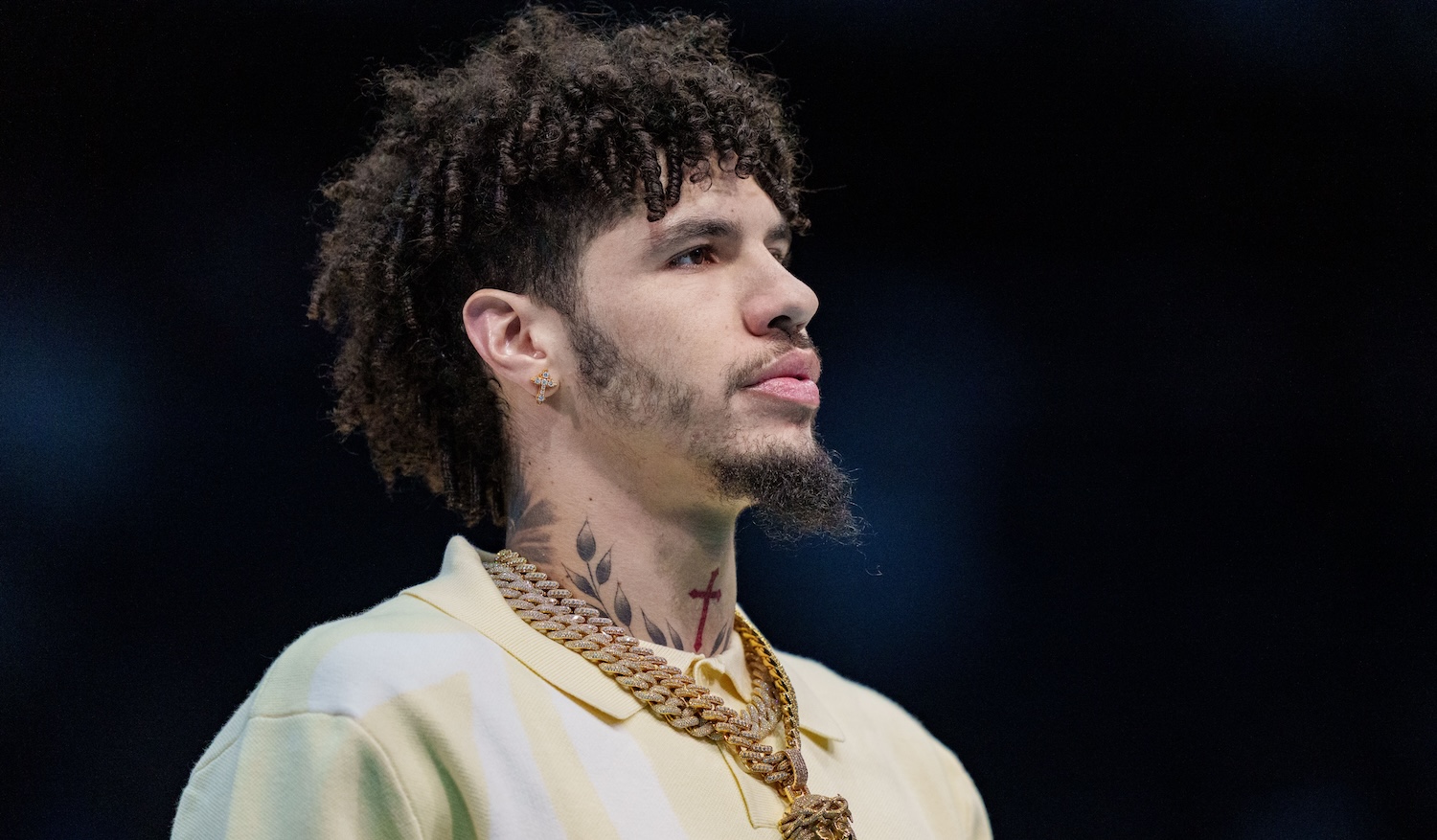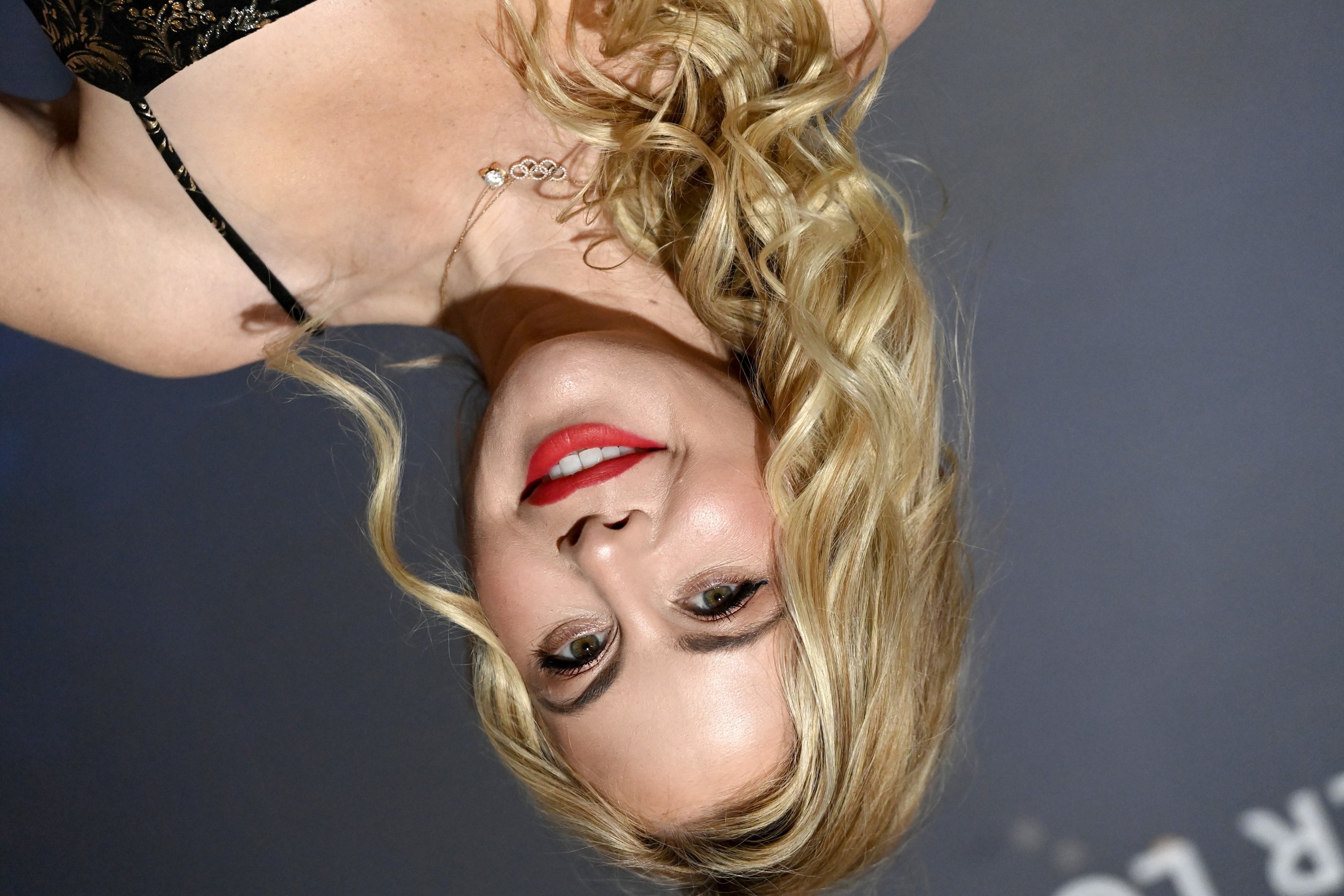The Brooklyn Nets appear to be good as hell now. This seems to have happened very suddenly, perhaps because we are still in the part of the season where a couple good weeks can take a team from play-in hell to the top of the standings. There was a fun little pre-Christmas run there where five mid-pack Eastern Conference teams had won at least three and as many as eight consecutive games. Most of those streaks are now dead, but the Nets are still chugging along, having won nine in a row and 13 of 14, and have risen to third in the East. They're good now. The Nets are good.
It's weird to look at Brooklyn's rotation now—the rotation that smoothly accelerated away from the Milwaukee Bucks in a lopsided win on Friday and then very coolly held the Cleveland Cavaliers at arm's length on Monday—and remember that just a month or so ago the Nets appeared to be mired inescapably in the crud zone, due to roster top-heaviness of the sort that continues to afflict the Los Angeles Lakers. Perhaps because they're getting healthy just as the rest of the league is easing into the usual mid-winter slog of scheduled rest and the maintenance of nagging injuries, the Nets appear to be the very model of effective depth. T.J. Warren (remember him?) and Yuta Watanabe have pushed Brooklyn's Morris twin out of the rotation; even with Seth Curry in and out of recent action, the Nets haven't had need or space for any of Cam Thomas's silliness. Brooklyn's preferred starting and closing lineup—Kyrie Irving, Kevin Durant, Ben Simmons, Royce O'Neale, and Nic Claxton—is now up to 15th in the NBA in total floor time, and climbing. Simmons's nightly triple-singles have gone from alarming to productive; Durant has hit that terrifying groove where it seems like every night he scores 30 points on 15 shots; eight different perfectly credible Nets players are shooting better than average from beyond the arc. Since Thanksgiving Brooklyn has the NBA's best offense by points per possession and the 10th-best defense.
It's annoying to think that health might be the largest part of this surge, because it was so fun earlier in the year, when the Nets were puke, to think that it was all screwy chemistry. Certainly Steve Nash's sudden firing, just seven games into this regular season, was not because he had failed to properly treat his players' various aches and pains. But it's fair to say that health is not all of what has clicked into place in Brooklyn. Jacque Vaughn, Nash's replacement, has his own theory: "Basketball," he said, when asked recently why his basketball team is lately having more success playing basketball. "When we step into the gym every single day it's about basketball: How we're going to take care of each other on the floor, cover for each other on the floor. It's about basketball."
That basketball is what accounts for Brooklyn's recent thriving at the sport of basketball is a perception that is evidently shared among Vaughn's peers. "From the outside looking in, it appears basketball is the main thing," explained Cavaliers head coach J.B. Bickerstaff.
Not everyone agrees that what has changed Brooklyn's basketball fortunes is basketball. "To be honest, I think we've always been about ball," said Durant, who certainly could never be accused of seizing every opportunity to disingenuously tut-tut the sports media for latching onto the wrong narrative. "There's so many voices speaking on what we do inside our locker room, when they don't really have an idea, I think that's the noise that you hear. But from us we've always been about the game. We struggled early on, I'm not saying we didn't struggle, but we always were focused on playing basketball ... I just think we've always been locked in on basketball and trying to help us get this thing back on track." But that basketball has not changed for the basketball men of the Brooklyn Nets does not mean that the basketball itself cannot be tweaked in unexpected ways, says Durant: "What we did was simplify both ends of the basketball." This is fascinating to me, because to me a basketball has always been a sphere, but then unlike Durant I am not a professional.
What Vaughn and Bickerstaff are being honest if euphemistic about is how moving on from Nash's awkward, fourth-brained egalitarianism and gaining distance from Irving's infuriating brush with antisemitism have allowed the Brooklyn Nets, as an NBA franchise, to experiment with, you know, being normal. It's one thing for Durant and O'Neale and Patty freakin' Mills to put their heads down and focus on their craft and professionalism as whole operatic movements of dysfunction swirl around them. It's something else for the organization to stop dealing grievous self injury long enough for everyone to start rowing in the same direction, for a change.
It seemed impossible to imagine, back in the first weeks of the season, that the Nets could ever coalesce into a basketball team, for the simple reason that it never seemed like any three of them shared a vision of what that even meant, or what their responsibilities might be within that framework. Now, a couple of months later, things are simplified, both in the sense that there have been no fresh upheavals and in the sense that the rotation and game plan have been stabilized. The Nets are now a healthy fifth in the NBA in net rating. Durant and Irving and doing the heavy lifting, Brooklyn's shooters are raining hellfire from deep, and there's breathing room and time for Simmons to put up the world's most celebrated eight points and six assists, and without having a complete professional meltdown. The vibes are so good now that hopeful observers are starting to once again gush about the little dipshit ways that Ben Simmons is, ah, minimally functional as an NBA player:
It's been the purpose/comfort from Ben Simmons for me. Small thing but taking the throw ahead in transition, backing down Mobley, getting Allen and the defense to engage is a lot different than the start. Also KD is insane. pic.twitter.com/BiJTMSc591
— Steve Jones Jr. (@stevejones20) December 27, 2022
This is absolutely ELITE defense from Ben Simmons.
— Jac Manuell (@JacManuell) December 27, 2022
He forces the steal, on a freaking inbounds pass, just filthy dominant defense by a guy who's slowly getting back to his elite best at that end of the floor. pic.twitter.com/54fersJjIY
Dribbling half-heartedly into a position where he is afraid to shoot and then throwing it out to the perimeter for a closely contested three-pointer?? Getting his fingers to an insanely ill-advised inbounds pass??? This guy is a fuckin' superstar!!
It's amazing what a few weeks of good health and just not doing anything powerfully self-destructive will do for a team stocked with useful pros. Good basketball players, grouped together, will tend to win basketball games. Teams that win basketball games will tend to have lots of fun. Groups of people who have lots of fun working together will tend to become invested in the enterprise, and then coaches can turn around and issue platitudes about Playing For Each Other and so forth. The hardest part of this is getting together some good basketball players, and Sean Marks did that part years ago. Some part of the rest of the challenge of building a good team is having—or, against all odds, developing mid-season, amid a vortex of controversy and dysfunction—the wherewithal to stay out of your own way.






